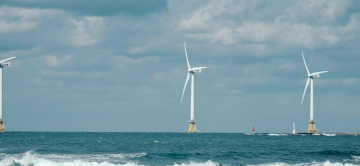The blackout that struck the Iberian Peninsula's electricity system on April 28, 2025 is still being analyzed by the Spanish, Portuguese and French system operators, as well as by ENTSO-E, the association for the cooperation of transmission system operators from 36 European countries. European legislation sets a deadline of 6 months for publication of the full conclusions. However, the lengthy time required for technical assessments does not suit politicians, who are anxious to find a scapegoat to absolve themselves of any responsibility at election time. In the eyes of Spain's Minister for Ecological Transition and Portugal's Minister for the Environment and Energy, there are several candidates to blame, including France and its lackluster interconnection construction policy.
The Iberian electrical peninsula and its ties to the European grid
The power system linking Spain and Portugal is not totally isolated from the European grid, but the Pyrenees constitute a costly obstacle to the construction of connections with France, and therefore with the rest of Europe. Over the period 2022-2023, Spain had an average commercial import capacity of 2.2 GW with France via 6 lines (CRE report, page 24). The construction of the Bay of Biscay interconnection, essentially submarine, between Gatica (near Bilbao) and Cubnezais (near Bordeaux), aims to increase physical interconnection capacity to 5 GW by 2028.
For Spanish and Portuguese politicians, higher capacities would have made it possible to avoid the blackout of April 28. France was not the cause of the blackout, but its sluggish interconnection policy would explain the geographical extent and duration of the incident. In fact, despite repeated requests from Lisbon and Madrid, interconnections account for just 3% of the peninsula's generation capacity. At the beginning of June 2025, the Spanish and Portuguese governments returned to the fray, sending a letter to the French government and the European Commissioner for Energy calling for a meeting before the end of 2025 to agree on a roadmap to set a target of 15% interconnections by 2030 (see 20 minutos).
Interconnections and systemic risk
Interconnections help to create a large market and, "in times of storm, they guarantee a significant degree of security of supply and are a symbol of European solidarity (CRE)". But they are not all good news. They also transmit problems from one country to another. For example, the blackout of April 28, which began at 12:33 p.m. in southern Spain and then spread throughout the Iberian peninsula, led to the disconnection of the French and Moroccan systems (see RTE). Nevertheless, it was transmitted across the Pyrenees, as part of the French Basque Country was offloaded and reactor no. 1 at the Golfech power plant shut down automatically at 12:34.
What would have happened if cross-border capacities had been greater? Since, at the time of the incident, Spain was exporting electricity to France, it is not illogical to assume that France, more dependent on imports from the south, would have been more heavily impacted, and would have found it more difficult to participate in the restoration of the Iberian network. But this is only one possibility. It's not enough to create an interconnection for greater energy flows to circulate through the networks. The networks upstream and downstream of the cross-border line also need to be able to carry more energy, which raises the problem of financing the reinforcement of national grids on both sides of the border.
Other troublemakers
On June 17, 2025, Spain's Minister for Ecological Transition held a press conference to present a report commissioned by her government (see El Pais). Without waiting for the conclusions of ENTSO-E's experts, the report identifies two culprits: i) the system operator (Red Eléctrica de España), which allegedly misjudged reserve capacity requirements for the day of April 28 (an accusation rejected by Red Eléctrica in a report dated June 18), and ii) the generation companies, which failed to correct the surge that appeared on the network as they should have (they obviously passed the blame on to Red Eléctrica). In addition to insufficient interconnections, the Spanish government is therefore turning to procedural errors attributable to national companies.
At least the Minister had the patience to ask experts to draw up a report. Chris White, the U.S. Energy Secretary, who uses the Trumpian rhetoric of "I believe therefore I am right", had already denounced the culprits the day after the blackout, without bothering with expert advice: it was renewable energies that plunged the Iberian Peninsula into darkness.
We can't wait for ENTSO-E's report!
Published in La Tribune, on June 30, 2025
Photo: Tim Rüßmann on Unsplash





